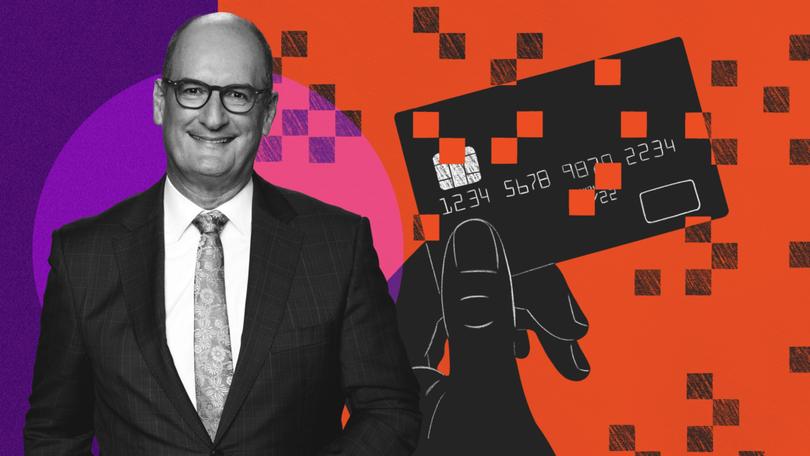DAVID KOCH: I’m fed up with online scammers using me as bait
One elderly woman lost $100,000 clicking on a scam ad, illegally featuring my image and fake comments, which appeared on the Bible app she read every morning.

Cyber scammers have become the new drug cartels, destroying lives and financially crippling Australians.
My question is why aren’t the authorities providing the same resources and consumer protections to bring down the cyber cartels as the drug cartels? Even 10 per cent of that would be a start.
This is a classic example of government regulation not keeping up with technology. Of legislative inaction providing a window for cyber scammers to destroy lives before the authorities shut the door.
Sign up to The Nightly's newsletters.
Get the first look at the digital newspaper, curated daily stories and breaking headlines delivered to your inbox.
By continuing you agree to our Terms and Privacy Policy.The UK and US legislation and regulation is way ahead of Australia. They provide the blueprint for us to at least catch up and, hopefully, improve further.
An investigative journalist mate of mine was part of a raid on one of these offshore cyber scam cartels and on the wall of the cartel’s call centre were signs saying to avoid Brits and Americans because their laws are so severe. Australians were highlighted as the major target because our laws are so weak.
I am passionate about fighting the plague of financial scams conning ordinary Aussies today and particularly those which illegally use my photo and fictitous comments to lure people into their scams.
All I can do is report these scams on Facebook, Taboola, LinkedIn or other platforms to the authorities. I am part of an ACCC action against some of the platforms which is currently bogged down in the courts.
There has been lots of talk about working with the major tech companies and providing legislative protections but there has been very little action.
In the meantime, the scammers keep fleecing Australians.
Recently I was contacted by an elderly woman who had lost $100,000 clicking on a scam ad, illegally featuring my image and fake comments, which appeared on her Bible app which she read every morning. The combination of my image in the trusted environment of a Bible app gave the scam credibility in the eyes of this victim.
Why can’t digital platforms carry the same responsibility? They are the new media but play under very different rules.
Another man recently lost $250,000 to a scam ad which appeared on a sports media platform.
Not only do these ads pop up on social media feeds and big platforms like Google and Facebook, but they now appear on legitimate news platforms as part of the programmatic advertising feeds at the bottom of news stories. You know those weirds advertisements you see when you scroll down past the end of a story.
Those advertisements and weird stories are provided by about four global tech companies which specialise in taking advertisements and distributing them globally. The legitimate news platform has no control over what appears on the feed, but they are paid for any reader traffic they generate.
The ones I’ve contacted to warn them of the scam ads using me simply say they have no control over the content, but they still take the money.
Not good enough.
Traditional media — television, radio and newspapers — are legally responsible for the advertising they carry. They can be prosecuted for any illegal or deceptive advertising.
Why can’t digital platforms carry the same responsibility? They are the “new” media but play under very different rules.
Digital platforms would certainly take the issue more seriously if they had to pay compensation to victims of cyber scam ads carried on their platforms. Or, as big global tech platforms seem to pay so little tax in Australia, why not look at imposing a levy on their Australian revenue which goes into a compensation fund for victims?
This accountability must be imposed by the Federal Government and the relevant authorities.
The UK government has brought all the major tech companies together to commit to an online fraud charter. It’s committed to bringing in a range of measures to help protect people from fraud and scam content when using their sites.
There is an obligation to verify new advertisers, remove fraudulent content, increase levels of verification on peer-to-peer marketplaces, and people using online dating services will have to prove they are who they say they are.
The charter will be supported by tough action to crack down on illegal adverts and ads for age-restricted products, such as alcohol or gambling, being seen by children.
And don’t think it’s just grandma and grandpa being ripped off by these scams. It is right across the community.
According to recent tax office data, younger Australians have fallen victim to the most tax scams. People aged 25 to 34 reported the most amount of money lost to tax scams, closely followed by those aged 18 to 24. In contrast, those aged 55 and above were among those who reported the least financial losses to the ATO.
The problem is the scams are becoming more sophisticated and “real”. Gone are the days of scams which were full of typos, bad grammar, and promises of riches from foreign royalty. The ATO is seeing many more sophisticated scam messages using official language and fraudulent websites that mimic online services.
Government action and regulation has to close the gap and catch up with technology or the financial devastation of even more victims will continue.
